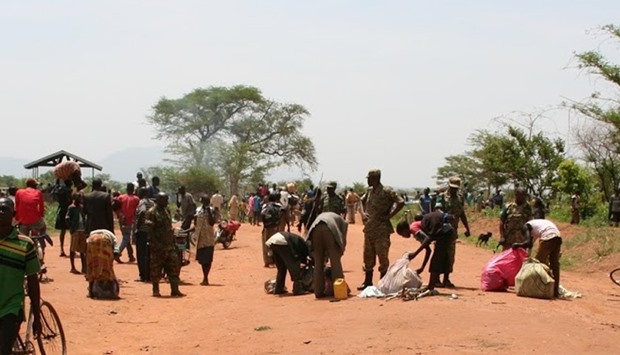The number of refugees fleeing violence following last month's contested presidential election in the Central African Republic has doubled in a week to 60,000, the United Nations said Friday.
The UN refugee agency UNHCR said more than 50,000 of those had fled across the Ubangui River to the Democratic Republic of Congo -- with 10,000 people arriving in the DRC on Wednesday alone as rebels attacked near the CAR capital Bangui.
‘The UN Refugee Agency is calling for the immediate end to all violence in the CAR as nearly 60,000 people have been forced to seek refuge in neighbouring countries since December, a two-fold rise in just one week,’ UNHCR spokesman Boris Cheshirkov told reporters in Geneva.
He said that besides those crossing into the DRC, nearly 9,000 CAR refugees had arrived in neighbouring Cameroon, Chad and the Republic of Congo in the past month -- while a further 58,000 people were still internally displaced within the CAR.
‘UNHCR and partners in CAR are gathering reports of abuses by armed groups, including of sexual violence, attacks on voters and pillaging,’ Cheshirkov said.
‘UNHCR is calling for an immediate return of all parties to meaningful dialogue and progress towards peace. The events of the last month -- since reports of election-related violence began -- reverse the trend of recent years of Central African refugees returning home.’
- Attack near capital -
Landlocked CAR is one of the world's poorest nations and has seen a string of coups and wars since it gained independence from France in 1960.
On Wednesday, rebel forces in the CAR mounted their closest attack yet to Bangui -- which lies on the Ubangui across from the DRC -- before being pushed back with the loss of a peacekeeper, the UN said.
Rebels launched an offensive vowing to march on the capital ahead of the contested December 27 presidential election, in what the government has called an attempted coup.
On January 4, President Faustin Archange Touadera was declared victor of the ballot, although the CAR's political opposition cried foul.
The results account for only about half of registered voters, as hundreds of thousands were unable to cast their vote in areas held by rebels.
The Refugee Agency said it was already seeking $151.5 million this year to respond to the situation in the CAR.
However, given the needs of those fleeing their homes, UNHCR expects it will soon face a substantial shortfall, and called on the international community to expand its support.
‘UNHCR and its partners are scaling up assistance for the new arrivals, despite poor infrastructure hampering the humanitarian response,’ said Cheshirkov.

